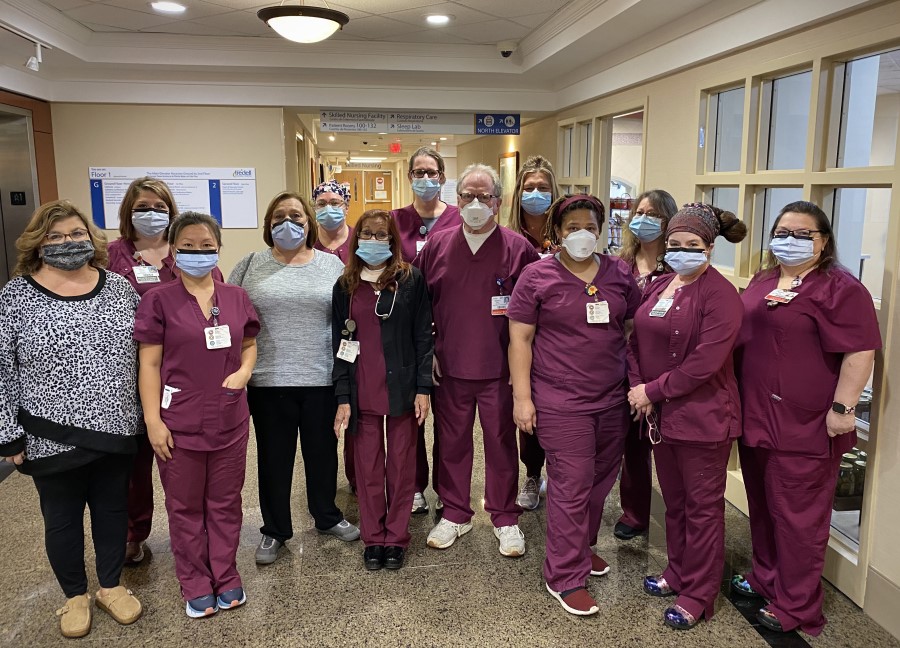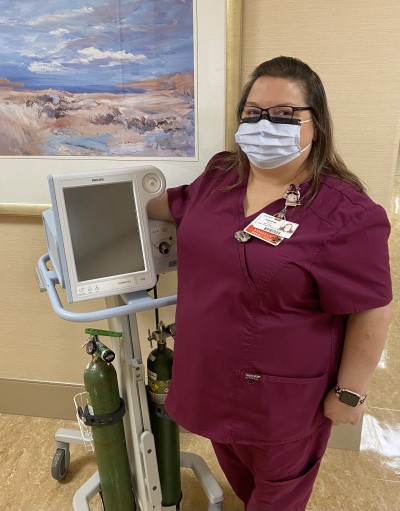
Special to Iredell Free News
Breathing is a natural part of our everyday life. We do it habitually, without even thinking about it. Breathe in, breathe out — seems easy, right?
Unfortunately, this simple act can be very difficult for some. Imagine how it would feel to be deprived of something you do every second of every day, something most of us take for granted.
For those with respiratory conditions, this is a familiar feeling. Breathing, a task that seems effortless for others, can, at times, feel grueling and fatiguing.
Fortunately, respiratory therapists are there to help.
The final week of October marks the start of Respiratory Care Week. Many of us have heard about the incredible frontline work of respiratory therapists during the pandemic. However, few people actually know what these medical professionals do on a daily basis.
Respiratory therapists care for people of all ages who have trouble breathing from respiratory conditions such as chronic obstructive pulmonary disease (COPD), emphysema, asthma, pneumonia, chronic bronchitis, and COVID.

For Iredell Health System’s Assistant Director of Respiratory Care, Jeannie Deal, the work of respiratory professionals and the importance of lung health hits close to home.
“Growing up, my grandmother had emphysema. Now, both of my parents have COPD and are on oxygen, and many of my nieces and nephews have asthma. I’ve seen it my whole life,” said Deal.
Emphysema, a condition that occurs when the air sacs in your lungs are damaged, is a form of COPD.
Because of her personal experience, Deal is able to empathize with her patients and their families. Understanding what her patients are going through makes it is easier for her to provide care for them.
“When we have patients who are scared and can’t breathe, I can relate to them and their families. My personal experience helps me to explain what is happening in a way that makes sense to them,” she said.
To treat respiratory patients, Iredell Health System utilizes a variety of techniques depending on an individual’s condition.
According to Deal, the respiratory team provides nebulizer care, airway clearance techniques, life-support devices, like ventilators, and lung education to care for and treat their patients.
Nebulizers are small machines that release medication in a mist, or an aerosolized form. Deal states that one of the most well-known nebulizer medications is Albuterol.
When respiratory therapists need to clear the mucus from a patient’s lungs, they can use airway clearance techniques. These techniques may include vest therapy and chest physical therapy,
both of which work to make breathing easier.
Sometimes, after oxygen and nebulizer treatments, patients may still need more help breathing. A bilevel positive airway pressure device, commonly known as BiPAP, can provide that extra
breathing assistance.
BiPAPs are types of noninvasive ventilators similar to CPAP machines people use at night for sleep apnea.
“To differentiate the two, I describe a CPAP machine as driving down the highway with your head out of the window at 55 miles an hour. A BiPAP has two pressures. So, you go 55 miles an hour, slow down to 45, and speed back up to 55,” said Deal.
This type of two-pressure treatment helps patients breathe easier by giving them heavy, higher pressure during inhales and lesser pressure during exhales. As a result, it gives the body the extra oxygen needed to function properly.
While respiratory therapists are available to treat respiratory conditions, working to improve lung health is vitally important. Deal often educates her patients on their medications, how to cope with their condition, and the importance of lung health.
For elderly patients with conditions like COPD, deep breathing and coughing exercises can help
keep their lungs clear and moving.
“In general, to keep your lungs healthy, stay away from smoking and vaping if at all possible,” said Deal.
In addition to smoking, occupational hazards can often harm people’s lungs. Those who work in furniture factories or with chemicals, painters, and even housekeepers are at risk for lung damage. However, wearing an appropriate mask on the job can help prevent this.
Deal also recommends maintaining a healthy weight and a regular, sustainable diet as a way to
improve your lungs.
“Everyone has to breathe to live. And, in order to breathe, you have to keep your lungs healthy,” said Deal.
About Iredell Health System
Iredell Health System includes Iredell Memorial Hospital; Iredell Mooresville; Iredell Home Health; Iredell Wound Care & Hyperbaric Center; Community and Corporate Wellness; Occupational Medicine; the Iredell Physician Network and more. Iredell Memorial Hospital is the largest and only nonprofit hospital in Iredell County. The comprehensive healthcare facility has 247 beds; more than 1,700 employees; and has 260 physicians representing various specialties. Centers of excellence include Women’s and Children’s; Cardiovascular; Cancer; Surgical Services and Wellness & Prevention. The Health System’s newest campus, Iredell Mooresville, is home to the area’s only 24-hour urgent care facility, as well as an ambulatory surgery center, imaging center, rehabilitation services, and physician practices. The mission of Iredell Health System is to inspire wellbeing. For a comprehensive list of services and programs, visit www.iredellhealth.org.



